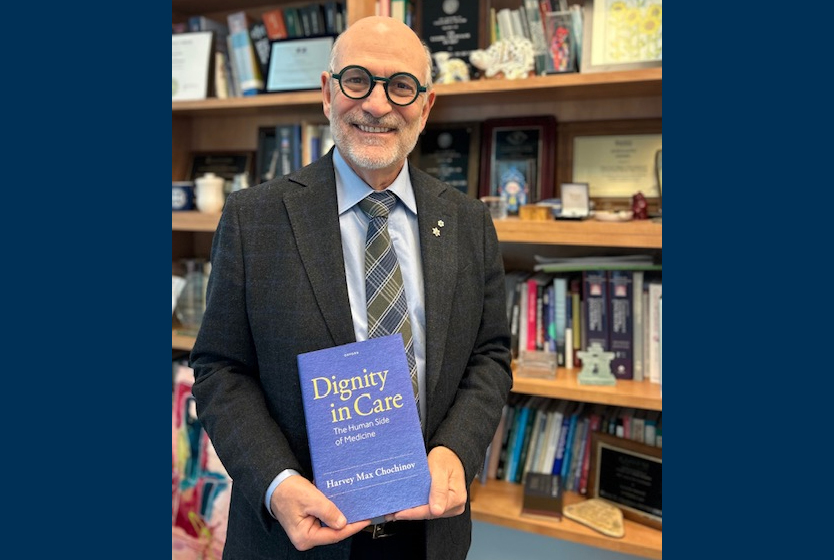New trial looks at reducing bleeding risk in cancer patients while also developing novel research methods
May 16, 2024

A new Investigator-Initiated Clinical Trial (IICT) led by Primary Investigator, Dr. Brett Houston, called the MYELO-CAN TXA trial, aims to see whether Tranexamic Acid (TXA) can help prevent bleeding in patients with certain blood cancers such as acute leukemia and myelodysplastic syndrome.
Patients with blood cancers often have low platelet counts, which predisposes them to bleeding while undergoing chemotherapy. Patients receiving TXA in this randomised trial will be evaluated by the research team for bleeding events as well as quality of life.
Significantly, this is the first trial being run through a new novel research platform across Canada. The trial team has been working to remove some of the barriers between research and clinical care that make trials expensive and slow to answer important questions. Historically there has been a distinction between research and patient care, rightly intended to protect patients from unethical research. However, this has inadvertently created barriers that limit patient’s ability to participate in research when they would otherwise be keen to do so. It has also negatively impacted scientific discovery and productivity.
In recent years, there has been growing interest regionally and globally in determining how to strike a better balance to remove unnecessary and prohibitive barriers. For example, changing the consent process so patients are not overburdened with complex legalities and technicalities, while still ensuring patients make informed decisions.
Patients are directly involved in platform development through engagement groups. They are consulted on information materials, consent methods, trial design, and dissemination of trial results.
A research platform includes centralized infrastructure, on top of which new, related trials can be added. This helps reduce trial costs, shorten startup duration, and improve overall efficiency. For example, if a study does not show improvements over the current standard of care, enrolled patients may be automatically eligible for similar trials, dramatically reducing the recruitment period for a study.
Research Institute News

May 16, 2024
New book from Institute researcher, Dignity in Care: The Human Side of Medicine helps shape the future of patient care
Senior Scientist at CancerCare Manitoba Research Institute, Dr. Harvey Max Chochinov has published a new book, Dignity in Care: The Human Side of Medicine, providing insight into how the disposition and attitude of healthcare providers indelibly shape patient experience.

May 16, 2024
Advanced magnetic resonance simulator to bring new options for research and treatment
The Institute has acquired a state-of-the-art magnetic resonance simulator (MR-SIM) to be installed in 2024, made possible by generous community donations. The research applications of this technology will include new patient treatment techniques and workflows.

May 16, 2024
$17 million lab renovation enables research creativity and innovation
A major donation from the Paul Albrechtsen Foundation facilitates the transformation of 20-year-old research laboratories into state-of-the-art facilities housing cutting-edge technology and leading scientists pursuing the next cancer breakthroughs.

